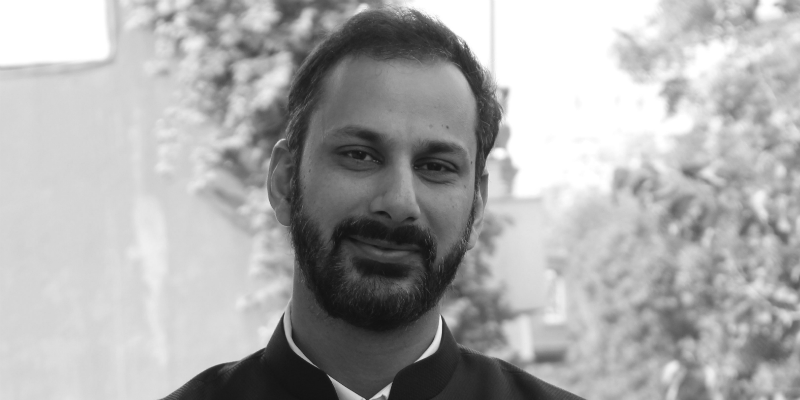Does your child have a developmental disorder? Mom’s Belief is here to empower mothers of children with special needs
Caring for children with developmental disorders and mental health issues can be a huge challenge for parents. Countries across the world adopt therapy and treatment programmes in differing and unpredictable ways. Therefore, empowering parents, especially mothers, to better look after their children with special needs is crucial.
When 37-year-old budding entrepreneur Nitin Bindlish was working as the CEO of Delhi-based Corona Dental Labs, he observed that parents of children with special needs weren’t getting enough support.
“I am a parent of two healthy, neurotypical kids. But I understood the challenges of parenting, and I know the challenges are multiplied when you have a child with a developmental disorder or a behavioral or mental health issue,” he says.
According to him, it is estimated that one in eight Indian children between the ages of two and nine may have at least one neurodevelopmental disorder. In some communities in India, the prevalence of developmental disorders can run as high as 19 percent, says Nitin. The needs are great and there are not enough solutions for parents that are accessible, effective and affordable.
Further, the social stigma attached to developmental disorders is hard for parents to overcome, not just in India but globally. This leaves parents isolated within their own communities and often within their own families. “They need support, and with the right kind of support, they can help their child develop and rise above the challenges of his or her disorder. Global research has proved that parents can be trained to help a child with a disorder such as autism spectrum disorder, and that parent-led interventions can deliver excellent, long-lasting results,” he adds.
Armed with the determination to empower mothers with home-based guided therapy programmes, inclusive education programmes, and services and support for professionals, Nitin launched Mom’s Belief in 2015. The Delhi-based company was initially bootstrapped, and after three years of extensive research and development, it has launched its own programmes this year.
In an interaction with SMBStory, Nitin Bindlish, Founder and CEO, Mom’s Belief, reveals more about how and why he setup the company.
SMBStory: What is the company’s approach to help children with special needs?
Nitin Bindlish: Our metrics and aspirations are not based on turnover, but on the basis of change in the lives we make for every family. So far, we have been able to touch 1,000 families across India, which is five times more than what we planned to serve.
Our model is to work with schools, centers, hospitals and most importantly, the home. We believe that no one believes more deeply in a child than a mother, and no one knows a child better and is more invested in a child’s well-being than a mother. We operate on the belief that when you empower a mother with knowledge, skills and resources, there is no limit to what she can achieve with her child.
Mom’s Belief addresses the needs of children diagnosed with autism spectrum disorder, ADHD, Down syndrome, specific learning disabilities, intellectual disability and global developmental delays, as well as mental health issues. We are fortunate to have an incredibly strong team of child psychologists, speech and occupational therapists and special educators who are led by our senior clinicians. We serve parents in India, Singapore, Dubai, London, Scotland, and the US.
We are also working with MSMEs through partnerships and collaborative arrangements that involve knowledge sharing, co-branded outreach and continuing education opportunities. These partnerships and arrangements are critical for the success of the ecosystem we are building.
SMBS: How does Mom’s Belief empower parents of special needs children?
NB: Our model helps parents, who already have access to professionals and resources for their child, by enabling them to work with their child between professional therapy sessions. This is a game-changer for parents because they come to understand that they are capable of helping their child in a very concrete way. They acquire a better understanding of their child’s disorder and they learn how to advocate for their child in their communities.
But there are millions of families who live in resource-poor areas and they have no access to professionals and programmes. Mom’s Belief gives them the ability to help their child with regular guidance from our clinical team and resources that are delivered to their home. A dedicated Mom’s Belief psychologist works with them, taking inputs from our senior clinicians.
One can’t imagine what it means for a mother, who doesn’t have a psychologist or therapist in her community, to suddenly have access to several professionals who have been in the field for decades. We complement our home-based programme with support for schools and therapy centers in order to create an ecosystem of support that touches every element of a child’s life. This helps to build awareness and acceptance, particularly in schools.
SMBS: How is Mom’s Belief leveraging digital to reach more parents?
NB: Digital platforms are critical for us as they provide a cost-effective way to connect with the parents and professionals who care for children with special needs. They also enable us to reach families in more remote areas, and given India’s mobile penetration rate, we can reach all segments of the society. Parents share videos of their child over WhatsApp, which helps them to define the challenges their child faces.
We share videos of activities and teaching tool demonstrations, so that parents understand how to use our resources effectively. Parents can use Skype to virtually bring their dedicated child psychologist into their home. Technology is the main pillar of all of the activities we are executing, and we want to use technology to support parents and professionals. For instance, we are developing tools that will help parents understand their child’s likely growth trajectory and map out plans for the future.

The Mom's Belief team
SMBS: What has been the impact of your work on customers and society?
NB: Our home-based programme is highly accessible and effective. In fact, there is no other service provider in India that delivers resources and the expertise of professionals directly to the home in order to empower parents. In terms of cost, our monthly subscription fee is just 20 to 30 percent of the average therapy cost, which opens the door to segments that have traditionally lacked the paying capacity for regular therapy sessions.
This way, we are providing information, guidance and training to parents who live in communities that are not served by psychologists and therapists. We are giving parents highly customised support for their child that not only takes the child’s needs into consideration, but incorporates the parents’ goals for their child and engages parents in the decision-making process.
It is rare for a mother to have a trained child psychologist available on call, but we provide that to ensure that a mother gets the mentoring and advice she needs, whenever she needs it. This is having an enormous impact on mothers who previously felt isolated and unable to help their child. They see firsthand how their own efforts can make a difference to the child, and that gives them hope. And that hope translates into a better future for the child and the family as a whole.
SMBS: What are your challenges in terms of sustaining and growing the business?
NB: With respect to our home-based programme, we have to encourage parents to believe in their capacity to support their child. We know it works. Our challenge is to turn parents into believers. Parents are still made to think according to the old structure, and we want them to realise that they can take charge, and their engagement cannot be matched by anything in the world. Many parents feel they need special training or knowledge to support their developmentally-disabled child. So we provide dedicated hours of mentoring or training for the parent as part of the programme.
Further, businesses in the healthcare sector must first have the right talent to succeed. Without participation or guidance from a highly experienced and well-trained clinical team, it will not succeed. Consumers today are more informed, they have higher expectations, and so they look for the best professionals they can find, particularly when it concerns the health of their child.
It is also important for healthcare entrepreneurs to know that in certain sub-specialties, the introduction of a product or service must be accompanied by a fair amount of education and awareness-building. Especially when they are introducing an innovation that approaches a problem in a completely different way.
SMBS: How do you manage backend logistics and what are your future plans?
NB: We have a solid advisory board that includes Rajan Anandan (MD, Google SEA), Afzal Modak (Ex-CFO, GE), Pankaj Gupta, and Pradeep Handa. We also have a strong backend team that handles inventory, logistics, IT, hiring, and outreach and communications. Our backend team works with innovative centers to manufacture the 2,000-plus resources we’ve developed for special needs children.
We also have a reverse logistics provider that allows us to deliver and collect teaching tools on a monthly basis. Our vendors and backend team members make it possible for our clinicians to do what they need to do to help parents and other caregivers.
With this strong foundation, we want to change the lives of 5,000-plus families in the next three years. The demand for special needs programmes, both within and outside of India, is significant. Our model is a scalable model that uses technology and sophisticated logistics solutions to take the programme wherever it's needed, and we are confident in our capacity to expand.
We are looking at markets in the Middle East, where we will establish a presence next year, starting with UAE and Kuwait. We are also looking at other Asian markets like Sri Lanka, Vietnam and Bangladesh.










